I was fired by three music teachers, when I was a kid. Honest, I was.
You might already know this, because I wrote about it in Chapter 2 of Confessions of a Corporate Trainer. Chapter 2 is where I explained the psychological process that leads to learning that must happen when building skills. Building skills is at the heart of what we trainers help people with.

What’s interesting is that I was fired by these three teachers because I wasn’t learning. And it wasn’t until my parents took me to an amazing piano teacher that all of a sudden, I was playing the piano well, and able to perform at student concerts.
My parents had wanted me to learn from this piano teacher for a long time. Because she had a reputation for helping her students perform well in their music exams. Where I grew up, it was customary for music students to take music exams every year. Her reputation as a great music teacher was tied to the results she helped her students attain.
What Makes a Good Teacher?
If you think back to teachers or professors who were great in your life, you probably remember ones who helped you achieve amazing things. Maybe they changed your world view. Unlocked a secret talent. Turbo-charged your performance. And while we may remember what we liked about them as teachers, we more often remember how they changed us. In other words, the results of their influence.
That’s why my parents wanted me to learn from this teacher – they anticipated she’d help their wayward son get good results. We never talked about her pedagogy or the way she taught. And I doubt you talk about that amazing professor who helped you see the world differently or helped you discover true potential.
So why don’t we talk about results very often, in the workplace learning world of talent development?

What Makes a Good Workplace Trainer?
Ask a colleague at work about what makes a good trainer and I bet they’ll describe things like having confidence in front of groups of people, polished presentations skills, and control of the classroom. This is what I mostly hear when I ask the question.
Six years ago, on a call with a new client wanting to ‘professionalize’ her training team, she asked for a three-day workshop. So, I asked what result she wanted. “Well, they need good PowerPoint skills,” she told me. (The big challenge her training department was facing was a loss of credibility with stakeholders.) As I spoke to her I realized that she measured the success of her team by how smoothly a program went.
Another client measured his trainers’ success by how well they controlled the classroom. He wanted his trainers to be confident, start on time, finish on time, and run every exercise like clockwork. Classroom control ranked at the top of the essential skills in his trainer job descriptions. “They have to be able to follow the lesson plan like clockwork,” he told me. “I don’t want them spending 20 minutes on a 15-minute activity.” His training department was struggling with budget cuts because his boss said he wasn’t seeing a return on investment for the 2 million they spent on training every year.
Is it About How They Do Their Job?
Notice how both talked about what the trainer did? They saw the primary sign of a good trainer as what they do, not what they achieve. By the way, that was past tense. Both teams now focus on learner results and have been drawn to the heart of their organizations’ talent strategies.
My first client and her team in the Midwest, have banished PowerPoint for all but the rarest of cases. And my other client now tells his staff that rather than control the classroom, his trainers need to give control of learning to the participants. They too have earned back the trust of their organization.
I think we need to put the spotlight back results. I’m not saying we shouldn’t be good at what we do but our conversations and pitches need to be about what learners will be able to do when they leave our virtual or physical class or complete our online learning content. I’m not the first to say this. Many of the great thought leaders in our profession have written about this. I’m thinking of the Phillips, Brinkerhoff, and the Kirkpatricks. But somehow, many trainers hear the message from these thought leaders but remain trapped in the mindset it’s about measuring ourselves.
 A Results Mindset Changes Our Conversations
A Results Mindset Changes Our Conversations
When we talk to our clients – internal or external – about results rather than what we do, our language changes. Instead of saying, “I can cover this material,” or “I have a presentation on this,” or, “I’m a dynamic presenter who brings energy into the room,” we say, “At the end of the workshop, your staff will be able to do X.” Or if we’re even bolder, we don’t say, “you’re buying a class on conflict resolution,” or “Your sending staff to a class on conflict.” You’ll say, “You’re not buying a class, you’re buying the capability to better manage conflict.”
Describing the work of a trainer in terms of the results she gets, takes guts. Seriously. Because at the pit of every trainer’s stomach is, “What if we don’t get the results we promise?”
Our profession has a huge body of knowledge about what works and doesn’t work, often referred to as learning science. We have tools that help participants build skills. Techniques. But sadly, many trainers haven’t been introduced to them because many train the trainer programs are all about platform skills – appearing confident in front of a class of 30 and using the flipchart with the right colored markers.
Using skills facilitation skills that are validated by learning science (that means proven by science to be effective at helping people learn,) can give us the confidence to offer real conditional results. And being able to be specific about what those skills are, helps us demonstrate the value of training. (That’s why I like learning objectives for 90% of training.)
What’s Your Reputation?
As I mull all these things in my mind, I keep reflecting on how it took months for my final piano teacher to accept me as one of her students. It’s because had a long waiting list of other people wanting to learn from her. That’s because her students got results.
If you are a trainer, do people say you’re a good presenter? A good entertainer? Fun to have a class with? Or do they say you changed their life? That you helped them become awesome at their work? When people see training as just a presentation, not as helping people be better, our reputation drops, and people stop looking to us for help. Except when they want a slick presentation to entertain people.
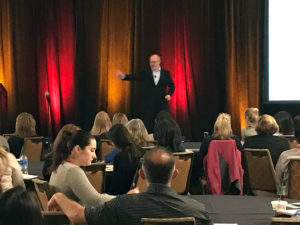
If you are a learning executive or training manager, how do people describe your operation? Do they say your training or talent department offers classes in different subjects? That your trainers are generally polished presenters? Or do they say they seek you out to help them achieve awesome results? A lot of training departments struggle to maintain credibility with stakeholders and very often it’s because the conversation is not about results. It’s about what the training department can deliver.
One of the greatest treats I get as a trainer is bumping into people I’ve worked with over the years. A few years back a group of trainers sought me out at a conference I was keynoting at. “How’s it going?” I asked. “We don’t use PowerPoint anymore,” one said. “I trust the learner, now,” another said. “And we’ve tracked that sales go up when people take our training.” Bingo.
The Challenge
Of course, I’m going to say that if you need consulting, coaching, or a workshop to help shift to a results-based practice from a delivery mindset, I’d love to hear from you and talk about the results you want. After all, that’s how I pay my mortgage. But it’s possible that I am the wrong person to help you or you might have everything you need to make the shift.
Regardless of whether you call me, someone else or dig into your own resources, let me urge you to think in terms of results. Talk about capability and what participants will be able to do, rather than what you cover. And of course don’t just talk about it, walk it. If you’re not confident assuring stakeholders about results they’ll with you, pull out some books on learning science, and figure out what you have to do to be sure you get results.
When training is done right, it is incredibly powerful at helping people experience and lead their own skills transformation. And when people make such transformation, they empower their organization to do better work and deliver for its stakeholders. Never forget how powerful your influence can be.


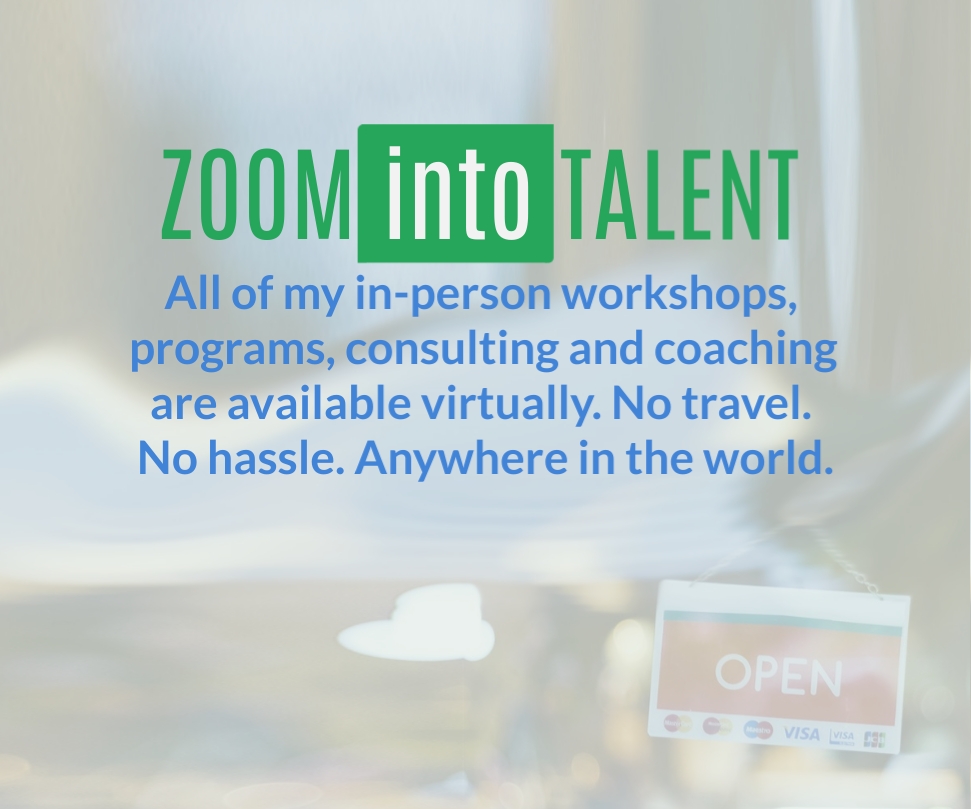

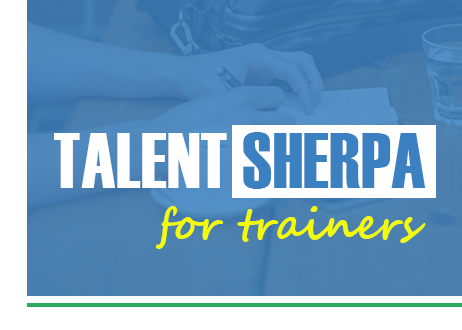
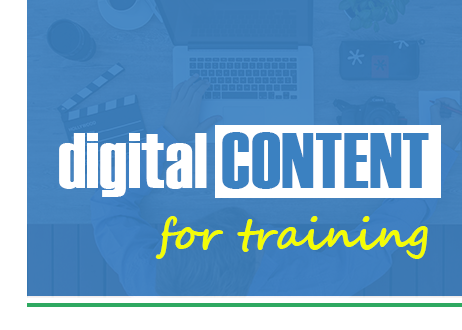
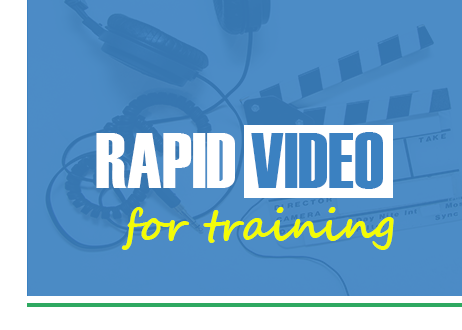

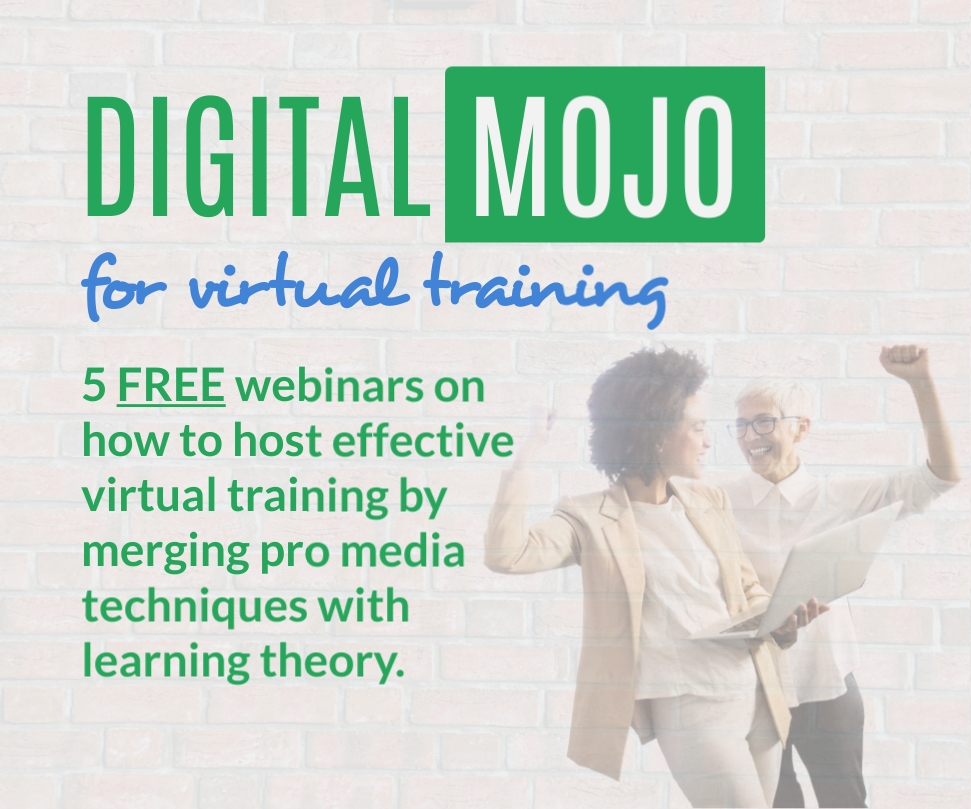
Comments are closed.